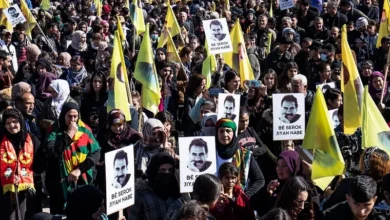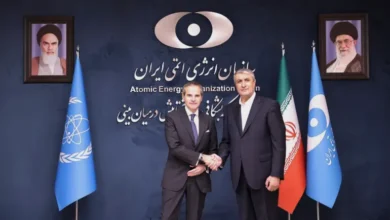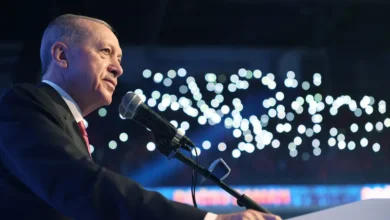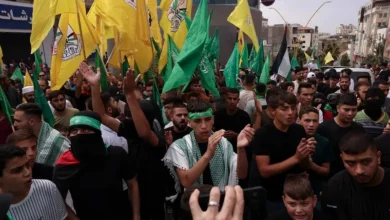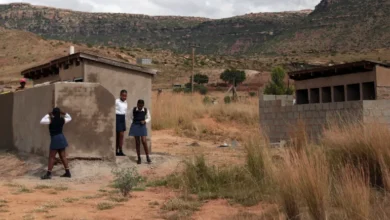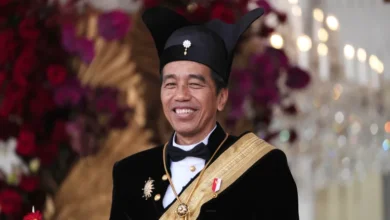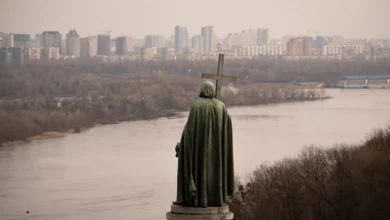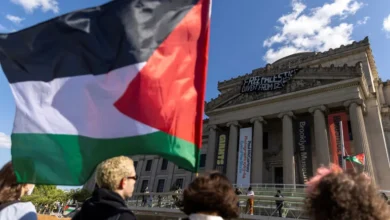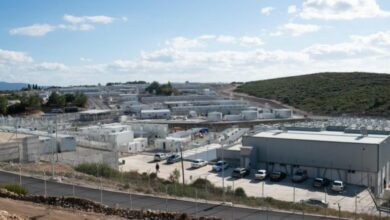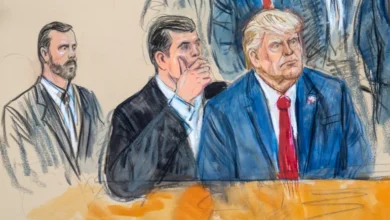Jailed Indian Muslims fight Delhi election to ‘set the record straight’
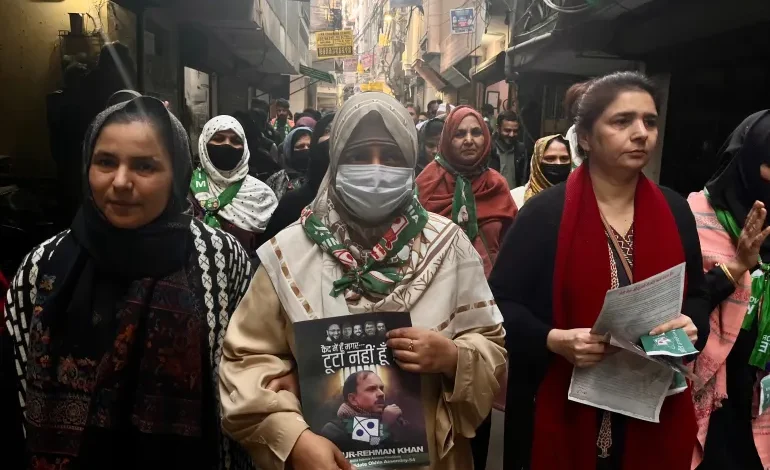
Nooreen Fatima, 41, anxiously watches the hands of the clock, waiting for her sons to return from school. She has a surging crowd of supporters waiting for her on the corner of her street, and she needs to meet them as soon as she can.
When they arrive, she hastily collects their schoolbags, then slides into a skin-toned abaya to rush downstairs before her team stops her to shoot a crowdfunding appeal, canvassing votes for her jailed husband, Shifa ur Rehman.
“Fighting for your rights, my husband has been in jail for nearly five years,” she says, scratching her fingers nervously.
In April 2020, Rehman, a 48-year-old human rights activist, was arrested by the Delhi police, accusing him of mobilising student protests against a controversial citizenship law. Critics have described the law as discriminatory because it fast-tracks naturalised citizenship for people from India’s neighbouring nations if they belong to any minority community — other than Islam.
Rehman and Tahir Hussain, another prisoner waiting for his trial in cases related to the riots and demonstrations that erupted in New Delhi in 2020 over the law, are running in upcoming elections to the Indian capital’s legislative assembly on February 5. In all, 53 people were killed in the 2020 violence, a majority of them Muslims.
After five years of intense legal battles, and dozens of appeals before Indian courts, their families are now turning to the Delhi election with a hope for redemption.
“We have been treated as gangsters and terrorists [since Rehman’s arrest]. In this election, we have to prove our innocence,” Fatima tells Al Jazeera. “When we win, people unjustly imprisoned for years win with us.”
Fatima leads a group of women, raising slogans from handheld speakers, through narrow lanes dotted with potholes, leaking sewers, and fading slogans on the walls from the days of the protest movement. “How will we answer oppression?” she shouts at the top of her voice. “By our vote to Shifa!”Both Rehman and Hussain are contesting on tickets of the All India Majlis-e-Ittehadul Muslimeen (AIMIM), headed by Asaduddin Owaisi. Though the party is contesting only these two seats, Owaisi, a five-time member of parliament from the southern Indian city of Hyderabad, has been campaigning to rally support for them.
In one rally for Rehman, Owaisi hit out at former Chief Minister Arvind Kejriwal, the leader of the Aam Aadmi Party (AAP), which has been in power for 10 years in the capital city. The AAP has won a bulk of the Muslim votes in the last two Delhi elections. But many in the community believe it has since let them down at a time when Prime Minister Narendra Modi’s Bharatiya Janata Party (BJP) — in power nationally — has increasingly faced accusations of adopting Hindu majoritarian policies. The AAP, for instance, has backed the controversial citizenship law that lead to the 2020 protests and has refused to support those imprisoned over protests.
“I dare him, to ever come to Okhla, and walk on these streets,” Owaisi said. “Then he will know how people live here.”
Okhla is among seven constituencies in the 70-seat assembly where Muslims are either in a plurality or have a large enough population to significantly affect the election outcome. With many analysts predicting a close contest between the BJP and the AAP in Delhi, these seven seats could prove critical in determining who rules in a city that enjoys major political influence in India as the capital. Okhla is witnessing a four-cornered contest, with the ruling AAP, the BJP, India’s grand old party Congress, and AIMIM competing.
The AAP has refrained from personally targeting Rehman and Hussain but took digs at Owaisi. Amanatullah Khan, AAP’s sitting MLA in Okhla, told Al Jazeera that AIMIM’s entry to the fray “is meant to divide Muslim votes and hand over the seat to the BJP”. Meanwhile, the BJP has hit out at Owaisi too, warning against “polarising the elections” by nominating candidates accused in riot-related cases.
